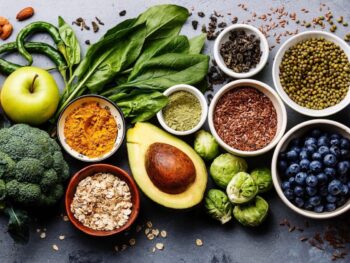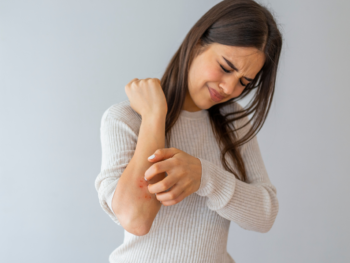Inflammation is your body’s natural response to injury or infection. While it is a necessary part of the healing process, inflammation can sometimes become chronic, leading to a wide variety of health problems.
In this article, we will discuss 5 signs of inflammation and how you can reduce it quickly and safely.
Chronic inflammation is a silent killer. It’s responsible for many diseases and conditions, including heart disease, cancer, and Alzheimer’s. If you’re not sure if you have chronic inflammation, here are 5 signs that you need to watch out for.
1) Swelling in certain parts of your body. This could be your stomach, ankles, or even your face.
If you notice that you’re suddenly bloated or puffy in certain areas, it could be a sign of inflammation.
Swelling is often one of the first signs of inflammation. If you notice that you are suddenly bloated or puffy in certain areas, it could be a sign that something is wrong. Pay attention to any swelling in your body and if it is accompanied by other symptoms on this list, make an appointment with your doctor.
2) Pain or stiffness in your joints.
Do you find yourself wincing when you move certain joints? Or maybe you’ve been noticing that it’s taking longer to get out of bed in the morning because your joints are so stiff. This could be a sign of inflammation.
Joint pain and stiffness is a common symptoms of inflammation, particularly rheumatoid arthritis. If you notice this symptom, make sure to talk to your doctor about possible treatments.
3) Difficulty breathing.
If you feel like you can’t catch your breath, or you’re short of breath more often than usual, it could be a sign of inflammation. This is particularly true if the difficulty breathing is accompanied by chest pain or pressure.
If you have difficulty breathing, it’s important to seek medical attention immediately as it could be a sign of a serious condition.
4) A feeling of fullness in your stomach after eating only a small amount of food.
Do you find yourself feeling stuffed after only eating a small meal? This could be a sign that your stomach is inflamed. When the lining of the stomach is inflamed, it can lead to a condition called gastritis.
If you notice this symptom, make sure to talk to your doctor about possible treatments.
5) Skin problems such as acne, eczema, or rosacea.
If you’ve been struggling with skin problems that just won’t go away, it could be a sign of inflammation. Many skin conditions are caused or worsened by inflammation, so if you’re noticing new or worsening skin problems, make sure to talk to your doctor.
Read this article if you looking for ways to fix your skin allergies without medication.
What can you do when your inflammation is chronic?
There are a number of things you can do to help reduce chronic inflammation.
-Eat an anti-inflammatory diet. This means eating plenty of fruits, vegetables, whole grains, and healthy fats.
-Exercise regularly. Exercise helps to reduce inflammation by promoting good circulation.
-Reduce stress. Chronic stress can worsen inflammation, so it’s important to find ways to relax and de-stress. Try yoga, meditation, or deep breathing exercises.
If you’re struggling with stress or simply looking for a way to wind down at the end of the day, give this song a try.
-Get enough sleep. Sleep is essential for healing and repair, so make sure you’re getting at least eight hours per night.
Click here to know 5 sleep habits to improve hormone health.
If you think you may be suffering from chronic inflammation, make sure to talk to your doctor about possible treatments. Inflammation is a serious condition that should not be ignored. With the right treatment, you can start feeling better and reduce your risk of developing other diseases or conditions.













 Reversing Type 2 Diabetes With Food. Is it possible?
Reversing Type 2 Diabetes With Food. Is it possible?